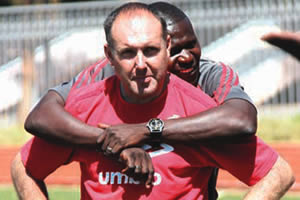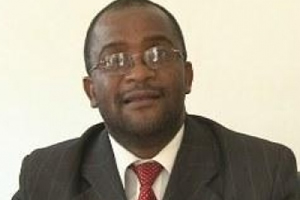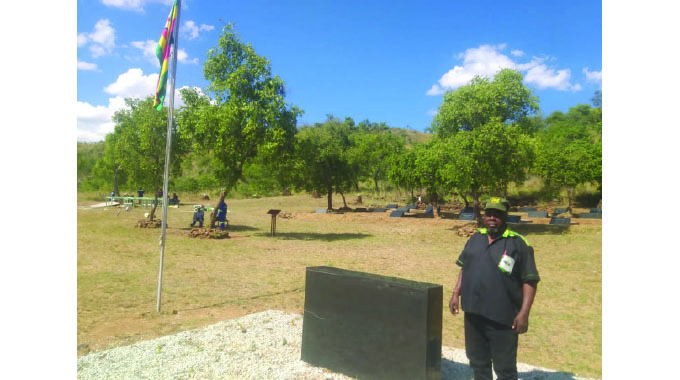ZDF: A flagship for development
accountants, scientists and journalists.
It also comprises the less educated that includes those who went up to Grade 7 and Forms 1-6. The military even takes on board those who may have not had the privileges of seeing the door of a classroom, but have good cultural and traditional education born out of our parents and village social structures.
The composition of the military has made it become the torch bearer of national development and national symbolism. In Zimbabwe, the military is a diverse profession that is composed of all social classes such as scholars, intellectuals, academics, the less educated, those not privileged with formal education, regionally represented, as they recruit using district administrative quarters, war veterans, born frees, the disabled and disadvantaged persons and so on.
Because of their mix, which is a common characteristic of any military, President Mugabe found it prudent to describe them as “Fine men and women who no one should doubt their professionalism for they brought independence, freedom and are responsible for maintaining peace and stability the nation is currently enjoying”.
They are a strategic national organisation that is the bedrock of our national unity, peace and development.
The military in Zimbabwe, is a profession that drives the national agenda of economic development. The military is an institution/profession that symbolises national cohesion and unity of purpose. The fear that the military’s talk of a straightjacket concept would affect their respect of civil authority is a fear of stooges who represent the interest of the West.
The concept of straightjacket is not only in Zimbabwe, but the world over in countries. It is a concept that required the office of the president to respect the history of a country and defend national interests, independence and sovereignty.
Anything outside that is never tolerated in countries mentioned above and many others. It is a concept that has seen some presidents across the world being assassinated by the military for being deviants of the straightjacket concept. A good example is that of America where two presidents were assassinated.
In Zimbabwe, the military has demonstrated beyond any reasonable doubt, the need for national unity. During the liberation struggle, the military were the forerunners of unity when they formed Zimbabwe People’s Army (Zipa).
In this regard they demonstrated their respect for civil authority for it was Zanu and Zapu that directed the military to form Zipa. At independence the military continued to demonstrate the willingness for national cohesion by successfully respecting the civil authority that ordered the formation of a national army.
This happened during the time when the West was beaming a lot of propaganda aimed at failing the formation of the national army. Apartheid South Africa intensified sabotage operations aimed at creating divisions within the newly formed army.
However, the military regarded itself as a national symbol for peace and stability, remained focused and respecting the political authority, that ordered it to form the Zimbabwe Defence Forces regardless of what some individual feelings could have been.
Throughout the history of the defence forces, the military has remained steadfast and averted the dangers of divisions that could have caused civil conflict.
The Chinese have their own culture of civil military relations (CMR), so does the United States, Russia, Tanzania, South Africa, Nigeria just to mention a few.
It is equally important to note that Zimbabwe too has its own culture of civil military relations. The bottom line is: are the military respecting the civil authority? The answer is yes as evidenced by the firm command of the military by the commanders-in-chief of the above mentioned countries including Zimbabwe. The questions that arise are: in the above mentioned countries is there a concept of straightjacket being done within their different cultures of civil military relations?
If yes, why has that not promoted security sector reform? What has particularly gone wrong with the military profession (the hybrid profession) to warrant security sector reform? Does Zimbabwe need security sector reform or it needs political sector reform to aligned stooges of the West to the cultures of civil military relations in Zimbabwe?
It is only in Zimbabwe where certain quotas of our politics behave like little uncultured children who care less about the value of their parents. The opposition in Zimbabwe should take a leaf from the military and borrow certain civil military relations experienced from China, America, Russia and include it in their culture in order to respect the military.
The failure by opposition, to garner enough support to obtain political power should not be blamed on the military who are the custodians of peace and stability.
Freedom of choice, freedom of association and freedom of speech does not mean one chooses to associate with State enemies and expect security agents to fold their hands. It also does not mean if one chooses to associate with those perceived to be enemies of the State and if one expresses sentiments that cause violence, the security agents must just watch.
No! The opposition must learn from the opposition in China, United States, Russia and Britain who oppose the way issues are done, but do not rubbish their countries when in foreign lands.
With regards to national development the military has been used to spearhead research and development.
The training of the military focuses on problem identification and problem solving. The military uses the concept of “scenario analysis”, which is a process that looks at various options of situations that many obtain in future and how to prepare for those situations.
The advantages and disadvantages of each scenario are considered and the best scenario strategy that gives a better standing on the varying situation is considered for action. The second aspect of making the military a leader in research and development is derived from its hybrid characteristic. No one should doubt that the military is a one stop shop, for research and development as it is a profession comprised of many other professions trained to think together for the same purpose and objective .
These varying professions, now molded through military training to form one strong, effective and efficient functioning unity becomes a national strategic organisation. It must be remembered that in peace time, the military becomes a useful tool for development. It is a real consultancy organisation that if well employed as is in China, Russia, Britain and America it will be a catalyst for economic and industrial development.
Because of its hybrid nature, it is time politicians in developing countries start employing the military to craft developmental strategies through co-ordinated research and development.
Panganai Kahuni is a political and social commentator.







Comments